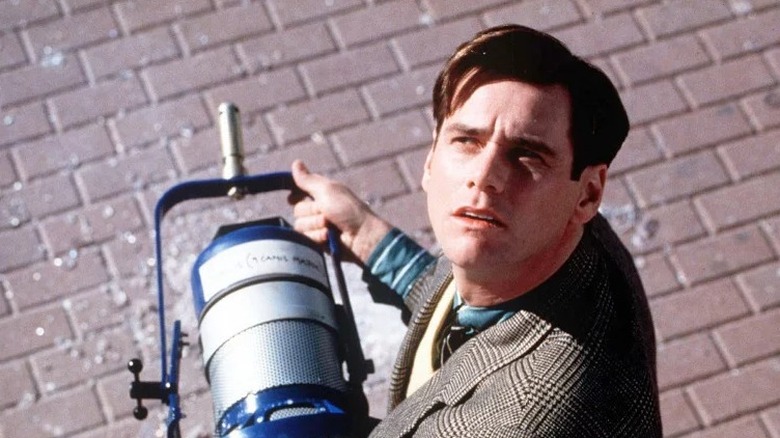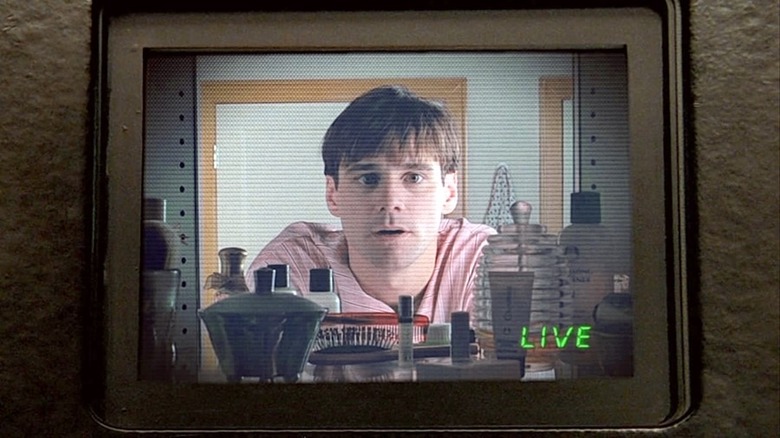The Truman Show Writer Knows Exactly What A Sequel Would Look Like
"The Truman Show" ends abruptly, but it's meant to. Our hero Truman Burbank (Jim Carrey) finally leaves the fake world of Seahaven Island and ventures out into the real world; the last we see of Truman is him walking off the soundstage painted like a cloudy blue sky. Without its star, the Truman Show is kaput. Once the show is over, the audience decides to watch something else. So it goes.
Directed by Peter Weir, the film has been lauded for its prescience. "The Truman Show" premiered in 1998, just before the reality TV boom hit. As the film predicted, many audiences would prefer a simulacrum of truth over scripted drama. This continuing relevance is one reason why the idea of a follow-up has been floated, even if nothing has materialized yet.
"The Truman Show" writer Andrew Niccol spoke with Screen Rant for the film's 25th anniversary and revealed some considered "Truman Show" spin-offs. For starters, there were talks about a "Truman Show" musical, presumably a stage adaptation of the original film. "The Truman Show" wouldn't be the first '90s hit movie to go to Broadway — see "The Lion King" and "Legally Blonde." However, I do think the story would lose something if it's not shot through a camera; when we watch the movie, we see Truman through the same lens as the in-universe audience.
That's why Niccol's own idea of a TV show sounds more intriguing. "When it's a different art form, I don't think it takes anything away from the original," he explained. What should Niccol's show version of "The Truman Show" be about?
Bravo TV, Truman Show Style
Niccol said his pitch would be a loose sequel to the film. As is often the case when a popular show ends prematurely, the audience wants more. Since the network couldn't just bring Truman back, they created a new show with the same premise but a different lead. By the time Niccol's series would begin, the network broadcasts multiple "reality" shows, each in different settings. He explained:
"If I set it in New York City, there would be girl living on the Upper East Side, a boy from Harlem, a kid from Chinatown, etc. Since they are all on their own channel and move in their own circles, they are never meant to meet. But at the end of the first season, the boy from Harlem and the rich girl find themselves drawn to each other. They both sense that the other is acting differently from anyone they've ever met ... because for the first time, they've met someone who is not acting!"
Niccol added that if the show got a second season, the conflict would be the network trying to tear the new couple apart. We saw this in "The Truman Show" itself; after Truman fell for an extra named Sylvia (Natascha McElhone), the crew intervened to tear them apart and push him toward the chosen love interest Meryl (Laura Linney) instead.
If there has to be a follow-up to "The Truman Show," I think Niccol's pitch is the best approach — take the premise but leave the original characters behind. The next chapters of Truman's life are better left to the imagination. Why undo the victory of the ending, where Truman finally gets his freedom and some privacy, and subject him to a camera's scrutiny again?

